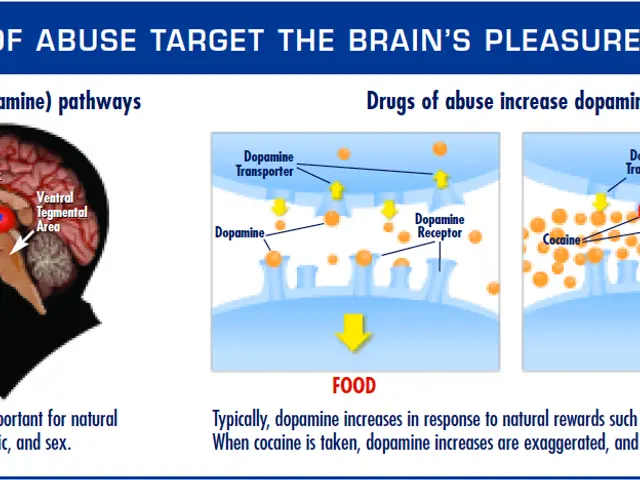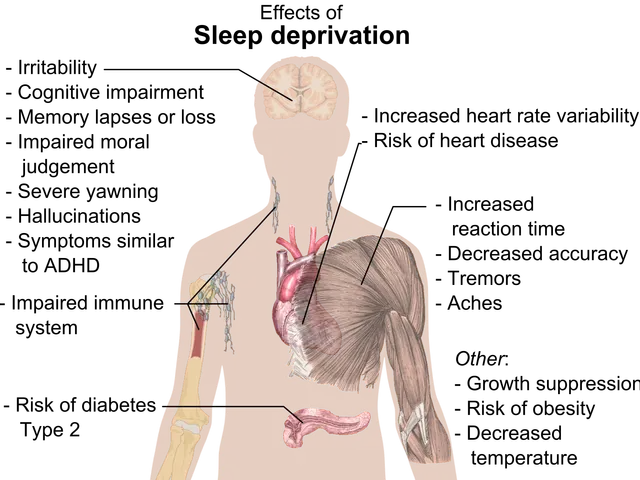Personalized Care Focused on Lifestyle Factors May Decrease Atrial Fibrillation Risk
Atrial fibrillation, commonly referred to as "AFib," is the most common type of arrhythmia, affecting over 33 million individuals worldwide. This irregular heart rhythm can lead to serious complications, like strokes.
Apart from known factors related to cardiovascular health, conditions like diabetes, obesity, and smoking, AFib risk is also associated with chronic health issues such as cardiovascular, respiratory, metabolic, and mental health conditions.
Research shows that individuals who are sedentary and don't engage in regular physical activity are at a higher risk of AFib. On the contrary, regular exercise and high-intensity interval training can help reduce AFib-related complications and improve quality of life.
Obesity is another significant risk factor, increasing the likelihood of developing AFib and its recurrence. Weight loss is crucial in reducing the risk of AFib recurrence and complications.
Smoking and excessive alcohol consumption can also contribute to the AFib risk, with the latter showing mixed results at lower consumption levels.
In addition to lifestyle factors, comorbid conditions such as obstructive sleep apnea (OSA), cardiovascular diseases (CVD), diabetes, and kidney dysfunction pose a higher risk for individuals with AFib.
The presence of OSA can increase the risk of AFib recurrence and complications during catheter ablation. Using continuous positive airway pressure (CPAP) machines helps manage OSA and thus reduces the risk of AFib.
Individuals with CVD, diabetes, and kidney disease are more likely to experience complications from AFib, including stroke or heart failure, and are at a higher risk of death. Managing and treating these comorbid conditions can improve the outcome of AFib patients.
The management and treatment of AFib are complex, requiring a multidisciplinary approach that takes into account multiple factors, including lifestyle choices, comorbid conditions, socioeconomic factors, and genetic predisposition. A tailored care plan for each patient is essential to achieve optimal results.
Avoiding a sedentary lifestyle, maintaining a heart-healthy diet, quitting smoking, and minimizing alcohol consumption are essential steps in reducing AFib risk. Managing comorbid conditions, such as CVD, OSA, diabetes, and kidney disease, through appropriate medications and treatments is crucial for AFib patients.
Ensuring equitable access to healthcare and education about AFib and AFib management across socioeconomic groups is vital in reducing the burden of AFib on public health and improving outcomes for patients.
- Predictive models can help identify individuals at risk of developing AFib based on various factors like cardiovascular, respiratory, metabolic, and mental health conditions.
- Stroke is a serious complication associated with AFib, and managing this risk is crucial for patients with AFib, especially those with comorbid conditions like diabetes or cardiovascular diseases.
- Depression is one of the mental health conditions linked to AFib, and addressing mental health through therapies and treatments is essential for managing and improving AFib-related quality of life.
- Anti-arrhythmic drugs are often used in the management of AFib, but alternative therapies like CBD have shown potential in reducing AFib symptoms in some studies.
- AQ (Atrial Quantitative Analysis) is a tool used in science to evaluate the electrical activity of the heart and assist in the diagnosis and management of AFib.
- Managing obesity and maintaining a healthy weight is important for AFib patients, as obesity increases the risk of AFib recurrence and complications.
- Nutrition plays a vital role in AFib management, with a focus on a heart-healthy diet rich in fruits, vegetables, lean proteins, and whole grains.
- Medicare coverage often includes treatments for AFib, but access to therapies and treatments can vary depending on the patient's location and specific healthcare provider.
- Health and wellness programs that emphasize fitness and exercise can help reduce the risk of AFib and improve overall cardiovascular health.
- Skin care is less directly related to AFib but is still an integral part of a comprehensive approach to health and wellness, as maintaining good skin health can contribute to overall physical and mental well-being.








